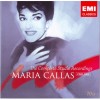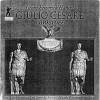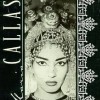| Voice/Instrument: |
Biography
Eugenio Fernandi was an Italian tenor born in Pisa in 1922 and raised in the countryside outside of Turin. He studied at La Scala in Milan and made his operatic debut in Lisbon during 1954 singing the role of the Duke in Rigoletto. He joined the Metropolitan Opera as a leading tenor on February 19, 1958, debuting there as Pinkerton in Madama Butterfly. Of that performance, a March 3, 1958 Time Magazine review noted that Fernandi “belted out thundering, on-target salvos of sound that rocked the house” further praising that “physically and vocally it is surely the handsomest Butterfly ever mounted on a U.S. stage.”
From 1958 to 1971, Fernandi sang eight seasons with the Met in thirteen roles. Besides Madama Butterfly, his Metropolitan performances in Tosca and Lucia di Lammermoor were also great successes. In one performance of the latter, he received twenty-two curtain calls. His aria in Tosca was once followed by a five minute ovation in which the maestro and the entire orchestra joined in.
His recording career was almost single-handedly undone by a 1957 recording of Turandot opposite Maria Callas and Elisabeth Schwarzkopf which Fernandi made much too early in his career. As a result, he recorded few full-length operas. His later recordings dispelled the criticisms of that very first one but by then it was too late. He was also hindered by his early personal management who, unbeknownst to him, did not accept many performance offers in a misguided attempt to make him into a more valuable commodity[citation needed]. It only served to make him seem temperamental. In actuality, he was very approachable, very personable, very kind, and very humble.
Fernandi was well-known in his adopted New Jersey (he was a long-time resident of West Orange). He sang many times with the New Jersey State Opera Company where his roles included the tenor leads in Aida, La Fanciulla del West, and La Traviata.
Fernandi died on August 8, 1991, at the Mayo Clinic in Minnesota due to complications related to surgery. Many sources erroneously list the date as August 15th or 18th because that is when word of his death reached the East Coast and newspapers began to eulogize him.






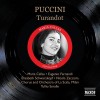
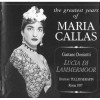
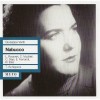
![Maria Callas - Puccini Turandot (1957) [Remastered 2014]](http://static.classicalm.com/repository/composition-cover/small/22929-img1423139417556574.jpg)
